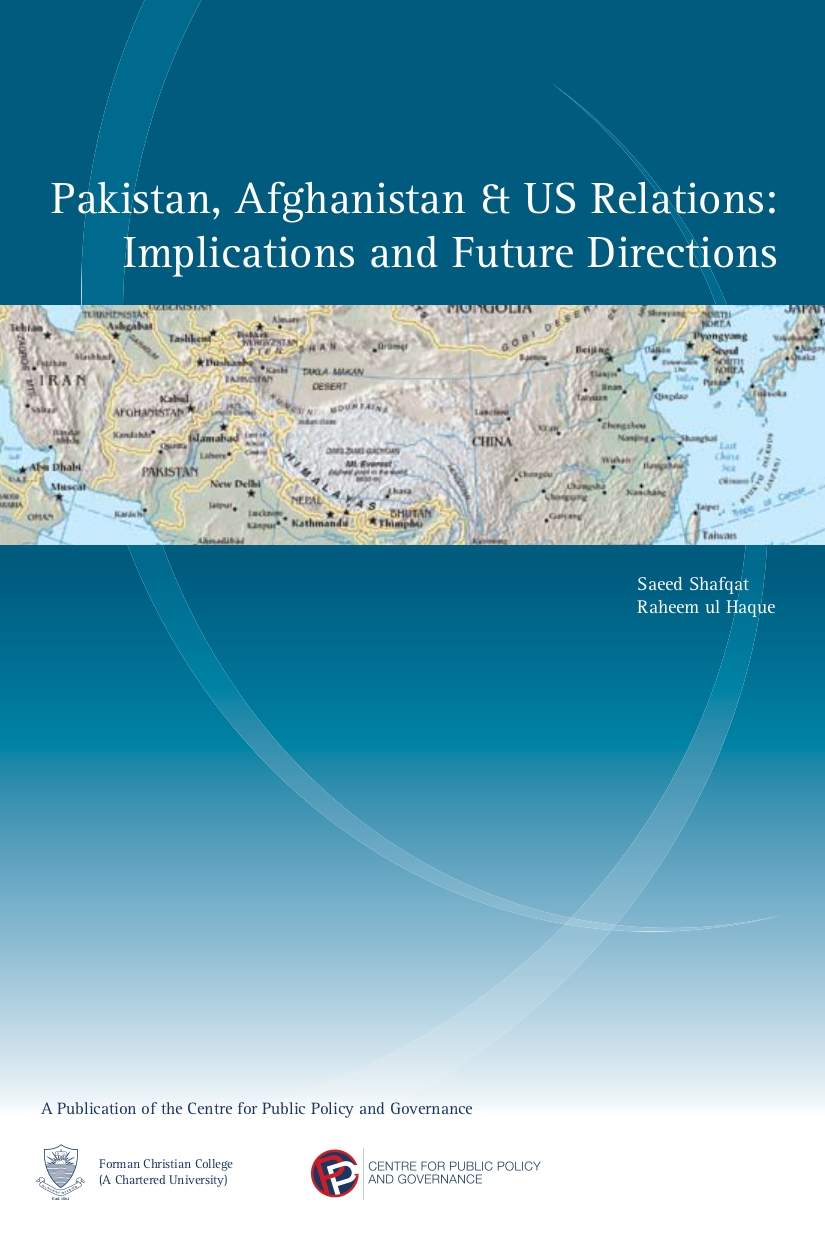
Preface
The Centre for Public Policy and Governance (CPPG) at Forman Christian College (A Chartered University) was established in July 2007. Over these years it has evolved around three fundamental concepts; an Academic Institution, passing on rich inter-disciplinary knowledge and professional skills, a policy Think Tank, where applied and evidencebased research to inform the policy process is conducted and where eminent scholars, experts and policy makers are routinely invited as guest speakers to address and participate in our Seminar and Policy Dialogue Series, and finally a Training Institute, where the students are exposed to real-life circumstances that they may, one day, become a part of.
In accordance with the function of the Think Tank, the CPPG compiles its seminars, policy dialogues and research every 3-4 months, in the ‘Quarterly’, a CPPG publication. While its hardcopies are often circulated in all relevant institutions of higher learning and policy making, discussed with relevant persons, or distributed among the interested, softcopies are available on the CPPG website to be read online or downloaded. To give you a flavour of the menu; the topics of discourse concentrate on issues of governance, democracy and institution building, strategic and foreign policy concerns, demography, environment and urban change, education, health, population, agricultural and industrial policies, terrorism and prospects of economic growth. Similarly, the CPPG actively pursues an ‘Occasional Paper’ series, posting online papers that were delivered and discussed among the CPPG faculty and students.
CPPG has been striving strenuously to launch Policy Briefs and Monograph Series on specific policy issues. Academic publications and policy relevant research requires not only Peer Review but also funding for publication. On both counts, Dr. Peter Armacost, Rector, has been generous and supportive.
It gives me pleasure to report that the Centre is making progress in this direction. For almost a year we have been deliberating, encouraging dialogue and conducting research on the subject. This year we are ready to share our research on two different topics; the first one is with you. We feel that in the wake of announced and anticipated US withdrawal (2014) from Afghanistan, our Afghan Policy needs serious dialogue, deliberation and change in direction as it has not only transformed Pakistan but also continues to have implications for our future generations, our relations with the US and the region– Central and South Asia. Tensions on Pakistan’s role in Afghanistan, its alleged connections with “Haqqani Network” have recently jolted US-Pakistan relations and could deepen mutual suspicion and distrust. Should Pakistan let its Afghan Policy de-rail the maintainability of US-Pakistan relations?
Now is the time to reflect, adopt corrective path and through consultative process explore alternate policy choices. This Monograph is a small step in that direction.
We look forward to your critique and comments and we also invite individual scholars/ policy analysts and relevant academic institutions for collaborative research. We think its time to build partnerships and develop a consortium of research networks among the public sector, private sector and civil society organizations to influence the policy process in the country by providing evidence based research.
Saeed Shafqat
Citations

